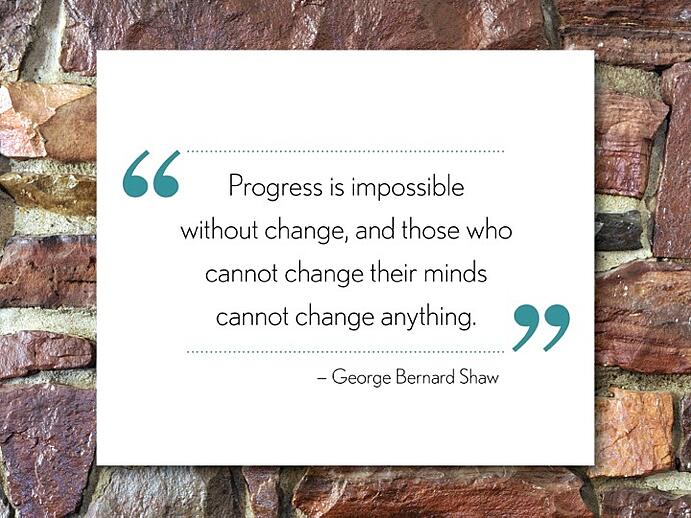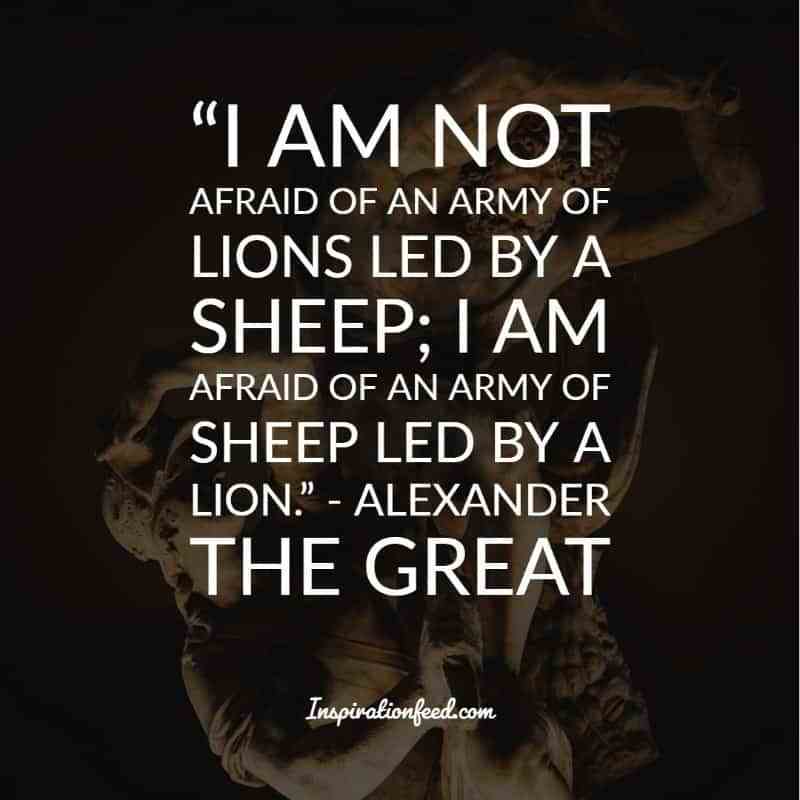A Humanistic View of Personality
- by Malindi Arengo-Jones
- •
- 05 Mar, 2019
- •
The Rogers and Maslow Legacy

The humanistic approach in psychology developed in response to the deterministic dominance of behaviourism and psychoanalysis prevalent in the United States in the 1960s. Abraham Maslow and Carl Rogers are two of the most influential names in Humanistic Psychology, both contending that the optimal psychological state for all humankind is self-actualization, an individual's potential within a synergistic society (Pearson & Podeschi, 1997; Winston, Maher & Easvaradoss, 2017). Self-actualization, however, can be inhibited by extrapsychic determinants (Francis & Kritsonis, 2006). According to Rogers, individuals have an innate self-actualising tendency which can be promoted or inhibited by the environment imposed on them. Maslow emphasizes that certain basic needs must be satisfied before a person can reach self-actualization or fulfilment (Maslow, 1943). These extrinsic and intrinsic drives underpin both personality theories, and frustration of the human tendency toward ultimate fulfilment, results in psychological maladjustment (Robbins, 2008). This phenomenological and idiographic approach to personality has courted considerable criticism suggesting that it reduces the complexities of human nature to individualistic simplicity, overwhelming cultural variability and the problem of evil (Acevado, 2018; Koltko-Rivera, 2006; Person & Podeschi, 1997; Kesser & Sheldon, 2000), while lacking in its pursuit of rigorous scientific methodology. This essay seeks to assess and evaluate the theories of Maslow and Rogers against the backdrop of these criticisms and investigate whether their humanistic approaches to personality can answer the charges levelled against them.
To provide the framework for this discussion, it is first necessary to provide a fuller explanation of the two theories under examination. Personality theorists attempt to construct a concept of human nature and from this basic framework, a theory of personality. While respectful of Freud’s psychodynamic therapy, Maslow preferred to examine the magnificence of human potential rather than the psychic origin of neuroticism and he criticised Freud for seeing only undesirable evil in the unconscious when it was also the origin of the very best of human ethics and values (Valiunus, 2011). Maslow proposed that people are born with instinctive needs that help development and self-fulfilment which he described as instinctoid needs, arranged in a hierarchy of pre-potency and ultimately responsible for influencing human behaviour (Malsow, 1943, 1954). Briefly, Malsow’s needs are arranged from physiological needs at the bottom of the hierarchy (most potent), followed by safety, love, esteem and finally self-actualisation. By satisfying the basic, deficiency needs (d-needs), the individual is able to focus on more social needs (b-needs). The satisfaction of one need will usually depend on the satisfaction of the previous more potent need. However, Maslow was aware that this would not always be the case. Behaviour is shaped by both personality and environment, including cultural and situational factors (Maslow, 1943). An environment that promotes opportunities for spiritual development free from economic and material factors, will I turn promote the self-actualizing tendency to reach self-fulfilment.
Similar to Maslow’s emphasis on environment, Rogers also proposed that the environment in which an individual develops is integral to personality development and self-fulfilment (McGraw-Hill, 1959). The phenomenological field of subjective experiences, how a person perceives their experiences, rather than how they actually might be, is the most influential factor (Rogers, 1959). An environment that offers unconditional positive regard will promote an individual’s actualising tendency, the ability to experience oneself in the way that one consciously is (Maddi, 1996). A child growing up in this environment will engage fully in this organismic valuing process and successfully internalise self-positive regard producing a natural match in subjective self-perception and ideal self-perception (Rogers, 1959). In contrast, development in an environment of conditional positive regard, where certain types of behaviour result in the withdrawal of parental love or harsh punishment, a child will learn to attach conditions of worth to his or her behaviour and rather than internalising positive self-regard, the individual introjects these desired values. The self-concept is then based on these introjected standards rather than organismic evaluation, disrupting the organismic valuing process and creating incongruence between the real and ideal self (Rogers 1961). As a result, those experiences that are in accordance with these conditions of worth will be perceived and symbolised correctly in awareness, while those that are not will be distorted and denied into awareness causing confusion, tension, anxiety and maladaptive behaviour (Rogers, 1959). The fully functioning person, with congruence between self and experience, is open to new experiences, expressed feelings freely, acts independently and trusts his or her own organism (Rogers, 1959). While the development of personality is an ongoing process, it is also subject to possible change, but according to Rogers the key point is self-acceptance (Rogers, 1961).
As discussed briefly above, Rogers and Maslow take a holistic and phenomenological approach to personality in which mankind is striving toward self-actualization. However, such emphasis on the self, free from reliance on others seems to promote excessive individualism and elitism, where only those growing up in the right environment with the ability to satisfy their basic needs, have a chance of self-actualizing (Lethbridge, 1986). Maslow’s more Marxist critics take a darker view of the self-actualized person, suggesting that Maslow is regenerating a new Social Darwinism (Shaw & Colimore, 1988). Animal groups are made up of individuals, but human groups are societies of persons interacting with each-other rather than simply interacting with oneself and Malsow’s needs theory does seem to imply an individualistic imperative that even Maslow admits could result in cynicism and nihilism (Maslow, 1982; Frick, 2000; Acevado, 2018). Rogers also emphasizes individuality and considers the infant to be the model of congruence and it is socialization that alienates us from our true selves (Rogers, 1961). Conditions of worth that distort our perceptions of our experiences result from statements of ideals and social norms (Maddi, 1996). However, although there does seem to be tension between individuality and collective action, Maslow refers to Alfred Adler’s “Gemeinschaftsgefuhl” as the self-actualisers feelings of identification and affection towards fellow man (Huber et al., 2000) and further suggests that self-fulfilment is found in a state of synergy, serving the social good while enhancing individual happiness (Valiunus, 2011). Malsow called this best synergistic society Eupsychia, a community of humanity’s best which suggests that Maslow was concerned with promoting the social good, referring also to the meta-motivations of self-actualisers to look beyond themselves to the greater good (Maslow, 1961). It is arguable that the idea of self-transcendence that Maslow was not able to finish before his death, could have provided an answer to his seemingly elitist humanism (Maslow, 1968). Rogers and Maslow both celebrate individuality rather than individualism (Person & Podeschi, 1997). Rogers’s Person Centred Therapy seems to work towards facilitating the individual to accept themselves in order to enhance society itself (Pearson et al., 1997). So, while Rogers and Maslow do promote individuality, it does not seem to be done in such a way that ignores the feelings of others or society in general, rather enhances the individual’s ability to contribute to the best society can be (Winston, Maher & Easvaradoss, 2017).
The concept of the individual self, as we have seen, is an integral assumption of the humanistic approach to personality, however personality traits are a dynamic and complex concoction interacting as a whole and what is positive for one person, may be negative for another (Miller, 2008). This is particularly true of cultural norms and variability. Maslow differentiated individuality from individualism, by defining individuality as a person’s uniqueness within society and the motivation to resist cultural pressures (Robbins, 2008). However, critics continue to assert that the individual cannot evolve synergistically without taking into account the culture in which they are embedded (Pearson, 1991). Heines (2003), found that self-actualization is foremost a function of American Society, noting that North Americans tended to view themselves in unrealistically positive terms whereas Japanese tended to view themselves less positively. Maslow proposed that his hierarchy of needs pertained to needs that were universally important and differences across cultures were superficial (Winston et al., 2017), for example whether infants are cared for just by their parents or by a village of adults, the universal need is security. In contrast, critics suggest that such a generic approach to personality development endangers the rich complexities of human nature by applying an oversimplifying uniform formula (May, 1996; Merleau-Ponty, 1995). Arguably, Maslow has instead created a framework within which one can identify significant goals and ideals without being lost in generality (Robbins, 1996; Bortoft, 1996). Maslow’s self-actualiser is motivated to achieve his potential, whether it be an artist, musician or philosopher (Maslow, 1968). Similarly, Rogers emphasizes the importance of the phenomenological field, subjective experiences, that we necessarily experience within our own society and culture (Kerbs & Blackman, 1988). Criticism relating to culture also focusses on the methodology of humanistic approaches. Both Maslow and Rogers can be criticized for their sample base in their development of their personality theories. Maslow began his research by first examining those he believed encapsulated the characteristics of a self-actualising person and arguably creating a theory from an already bias starting point (Acevado, 2018). While there has been some research to support Maslow’s hierarchy of needs (Graham & Balloun, 1973; Ryan & Deci, 2000), the very characteristics upon which such research is based come from a pre-existing notion of what Maslow believed to be the best of humanity within his limited sphere of White Western culture. Rogers’s undeniable contribution to psychotherapy may have been limited to a specific populous that fit his model (Nietzel, et al., 1994). However, he can also be credited with opening humanistic psychology to empirical study and assessment by recording his therapy sessions (Ryckmann, 1993). Nonetheless, both theories were born largely within white western culture, but it should be noted that Rogers and Maslow intended for their personality theories to form a basis for further research and investigation (Valiunas, 2011; Robbins, 2008) and by providing a universal framework for the development of personality, this endeavour has been facilitated (Assor, Roth & Deci, 2004; Campbell, Rudich & Sedikidas, 2002; Shostrom, 1964).
An interesting parallel between Maslow, Rogers and culturalisation discussed above, can be drawn between innate self-actualising tendency and the inner state of perfection achieved by the enlightened person of Zen Buddhism and the sage of Taoism (Chang, 2018). A similar framework plays out in Western culture (Humanisitic) and Eastern culture (Zen Buddhism and Taoism). However, Chang (2018) suggests that unlike the enlightened person of Zen Buddhism or the sage of Taoism, Rogers and Maslow’s self-actualiser is more influenced by their society. Within the western culture of consumerism, the self-actualiser stands autonomous and free from the approval or disapproval of others (Maslow, 1954, 1970). If so, then how does Maslow account for any concept of evil that could underlie the characteristic of self-actualisers that allows them to transcend any feelings of guilt (Acevado, 2018)? Shame and guilt provide individuals with a moral compass that indicates where repentance or reparation may be required (Acevado, 2018). However, in the absence of such feelings, the self-approved self-actualiser can justify the ultimate end of evil rather than good sanctioning individualism and eradicating moral responsibility (Acevado, 2018). Maslow’s answer to this could lie in his later conceptualisation of self-transcendence, which puts aside the individual’s own needs and serve a higher purpose (Koltko-Rivera, 2006). Those who have reached self-actualisation, now find that they are motivated by meta-needs. Meta-motivations underlie healthy functioning and include the need to know and understand the environment. According to Maslow there are 18 B-values that need to be realised in order for the self-actualiser to remain healthy (Maslow, 1954) (Shultz & Schultz, 2016) and as proposed by Koltko-Rivera (2006) provides a universal application for the pursuit of the meaning of life. In answer to the problem of unchecked evil tendencies, Maslow suggests that failure to realise these meta-motivations can result in pathogenic outcomes and each is associated with a pathology and metapathology. Self-actualisers can become helpless and depressed though unable to identify the source of their distress (Shultz & Shultz, 2016). While Maslow provides self-transcendence as a buffer for any malign, immoral tendencies of the self-actualiser, Rogers would suggest that the therapy would offer the individual the unconditional positive regard that is required to ensure that personality development is redirected and adjusted to account for moral responsibility and regard for others (Rogers, 1959). In this way, both theories are able to address, if not answer, the potential for narcissism and cynicism within the ideal human personality.
In conclusion, the personality theories of Rogers and Maslow cannot fully be covered in an essay of this length, however, some of the main criticisms of the theories have been addressed. Culture and individualism have been repeatedly raised as problematic, however if the theories of Maslow and Rogers are seen as frameworks to be used universally, then there is considerable scope for application outside the Western world. The same can be said for the repeated criticism of unsatisfactory methodology. The idiographic approach of humanism creates a problem for ecological validity, but nomothetic approaches can be too generic. Rogers provided opportunity for the empirical study of his theory by recording his therapy sessions and Maslow has created the framework for scientific testing and both qualitative and quantitative analysis, by providing a set of characteristics that can be tested and measured across cultures. These two personality theories have sought to provide an ideal that we are all innately motivated to achieve, the ability to take on the anxieties as well as the joys of life.

Research suggests that sparing a thought for your HR Team this quarter may reap disproportionately long term rewards. Over the past few years it's likely that your human resources talent have been busily preparing your company for comparative (in pandemic terms) fripperies. These will have included leaving the EU, attracting the best talent with new ‘woke’ requirements, machine learning and AI based shifts in personnel, to name a few. Of late however, many such tasks will have been sidelined as your HR professionals negotiate the myriad of Covid related complexities. Thus, whilst many well honed human resources teams may appear to be gliding serenely through the water, it's likely that they are paddling furiously beneath. In recent months, alongside the plethora of complex pre-covid challenges brought forth during recent years, your HR professionals will have been equally consumed with the dramatic changes facing the broader post covid landscape of human resources itself.
It was observed in 1809 that long term survival of an organism is dependant predominantly upon its ability to adapt to change. Organisations are no different. A wave of change is inarguably upon corporations and the way they deal with their human element. In response to which, many of our corporate clients are choosing to discard the often ‘auxiliary’ perception of the HR team. Human Resources functions are being driven closer towards the heart of many forward thinking organisations, as leadership begin to heed research supporting that this team of people have the innate ability to empower profitable corporate change. Questions many companies are currently asking themselves include: How prepared is our company for the intensity of corporate reshaping prompted by the current global pandemic? Does our HR team have the tools and breadth of operation it needs to respond to the new specific ‘human’ and ‘remote’ challenges we face? In answering these questions, the following areas of HR ops are pivotal.
Perhaps unsurprisingly, Adecco group has recently found that 75 percent of workers wish to keep the flexibility they have benefited from during the pandemic. More surprisingly however is research suggesting that this new method of professional functioning may actually be of value to employers: Flexible workers are often more engaged and statistically less likely to leave. Now, this is where the real work begins for HR and where their metal is tested. How can your company or team maximise the performance of its professionals whilst not falling foul of the many and well documented pitfalls associated with flexible/ home working? Such snares are summarised by research institutions including The Centre for Evidence Based Management. Studies underline that hazards tend to fall under three main factors highlighted as being vital in a ‘psychologically effective workplace’. These three essential factors are ‘trust’, ‘information sharing’ and ‘social cohesion’. Three constructs which are illusive at the best of times within most organisations and even harder to achieve when the workforce is at home.
It becomes clear then, that some hard graft will be required if we are to cultivate a psychologically effective workplace and reap the aforementioned benefits offered to us by a more a more flexible working environment. HR teams must devise new ways to create drive, innovation, thrust and rapport amongst an organisations greatest asset – its professionals. In recognition of the broadening roles of the oft-pidgeonholed HR team, forward thinking companies are prioritising support for HR executives in their exploration of how to inspire leadership and their teams in this new age. As well as considering the dramatic adaptation which HR is currently attempting to facilitate, daily tasks will also need rethinking. Many will attest for example to the difficulties associated with onboarding where new hires don’t even enter an office. Possibly, Human Resources have never had a more acute part to play in the performance of an organisation than now, when they must consider how to nurture a psychologically effective working culture, remotely.
Another central area to support your HR professionals in, is that of wellbeing. Whilst this concept is by no means new and sits close to the top of many corporate agendas, thanks to Covid this concept has taken on a new level of gravity and functional importance. Before 2020, more employees than ever were suffering from poor mental health. After what is now a year of social isolation, professional upheaval, emotional challenge and financial hardship, our workforce is under more (invisible) pressure than ever. Just as a race car cannot be expected to win with worn parts, our professionals will not outperform the competition when they’re run down and stressed. It is perhaps timely and logical that HR teams also be given the tools they need to offer services which maximise personal growth, professional development and mental wellbeing.
Whether handled via an in-house team or outsourced to an external HR specialist, now is the time for HR professionals to be accurately utilised. Any flippant regard for this fundamental department should as of now be placed firmly in the corporate rear view mirror. Visionary leadership will be required going forward to create the necessary human resource driven adaptations if organisations are to take advantage of the possibilities presented by the new flexible/ remote working culture. Cometh the hour, cometh the HR team...

Whilst workplace stress is receiving a healthy amount of attention these days, a very particular group remain unattended to. For the majority of senior executives, accurate assessment of their own levels of stress continues to be overlooked. A destructive, yet understandable taboo persists amongst corporate leaders in both identifying and addressing their own overwhelming stress. Psychological research attributes this largely to the fact that executives themselves see any such admission as a sign of weakness. From time to time, a manager, HR specialist or an executive coach may pick up on some behavioural signs of severe stress, such as substance abuse, anxiety or severe tiredness. However, unless the intervening professional is either a medical doctor or has psychological training they are unlikely to be equipped to assess masked stress behaviours, let alone effectively encourage acknowledgement of the issue. Furthermore, coaches and HR specialists whilst helpful, are rarely trained in the psychodynamic protocols required to assist the executive in dealing adequately with concealed stress. Thus, senior executives require the support of professionals familiar with the areas in which executive stress often arises, and who are then able to evaluate veiled stress levels and promote self-awareness. Most crucially though, they must be able to do this in a group of people for whom ‘stress’ is simply not a topic for discussion.
Research suggests that the wellbeing of our corporate leaders is being neglected due to an unwillingness and inability to recognise and manage workplace stress. Our industry captains are trained at an early age in the art of concealing imperfections and later on, in obscuring professional struggles. After all, who would respect a leader who admitted to feeling tired, anxious or overworked in today’s competitive corporate environment? Surely a competent leader should be the ‘ideal’, void of all weakness and represent the epitome of strength? It is this common perception which necessitates self-deception and impression management tactics in leaders, and which deters senior professionals from seeking even secretive assistance. It is unrealistic however to expect people to cast off the natural human desire to be led by idealistically strong or perfect executives, or the desire of executives to embody that. We can nonetheless assist leaders in the discreet identification and recognition of this organisational enemy which has been shown to constrain both corporate and personal growth. So why and how should we approach the ‘unnamed scourge’ of the boardroom?
The challenge faced by executives and corporations due to stress is increasing under the perpetually evolving face of global business. Life in the fast lane is more challenging than ever. It now encompasses colleagues who work on opposite sides of the globe, relationships conducted solely electronically, frequent mergers and acquisitions, far flung loved ones and social media which demands a greater portion of our cognitive energy than our actual day jobs. Executives nowadays have a broad burden to bare. Professionals who experience stress related depression and exhaustion are worryingly common and well researched (Nyberg et al., 2015) with awareness raised only periodically by high profile cases such as that of the 2013 suicide of Zurich Financials CEO. No less than five top executives at the largest Swiss financial institutions took their own lives over a period recently of eight years. Understanding and promoting the psychological wellbeing of an organisations top performers not only avoids human tragedy, but also has a profound and more materialistic impact on a company. In 2012 as news was released that the CEO of AkzoNobel went on sick leave due to fatigue and work stress, the company’s shares dropped by 4%. The day his return was announced several months later, share prices rose by 3.7%. Senior executives well-being and health problems inarguably impact not only the support of employees, but also that of shareholders and investors. It’s also no wonder that research by a leading U.S University puts the cost of stress to American business at $344 Billion a year in medical bills and absenteeism. Thus, and as the social taboo surrounding stress in our leaders is not likely to disappear any time soon, stress management can and must be considered in all leadership performance forums. If not, and as history has foretold companies will reap not only human but also corporate misfortune.
As far as the executives themselves are concerned, it has been observed that this group have a tendency to wear ‘stress’ as something of a badge of honour: If you don’t have it, then you are probably not working hard enough. Senior executives have a propensity to acknowledge that stress is there, whilst forbidding themselves from acknowledging its true impact, to themselves or to others. “Got to suck it up” or “All part of the territory”. It is seen as normal for executives to survive on five hours of sleep a night, to be under constant pressure and to be glued to their emails every day of the week. This high performing, highly paid body of workers are thus particularly susceptible to stress and illness, but have neither the social permission, nor the time or self-awareness to identify and to deal with this dynamic. Thus, whilst executive stress is apparently ‘accepted’ it is nonetheless ‘normalised’ which further exacerbates the taboo: “Stress is normal for people like me, everyone else manages, so should I”. So how can performance professionals and leadership development interventions best take this issue in hand, allowing for the social requirement for organisational resistance and self-deception in executives?
Given the above landscape, most executive coaches and HR professionals are ill equipped to deal with executive stress. Performance Psychologists and those extensively trained in mental wellbeing are able to identify stress issues and particularly those relating to self-deception and the unconscious aspects of an individual’s perception at work. For example, research suggests that positive results are achieved through employment of a psychodynamic approach to stress in executives, permitting a more subjective examination of work and wellbeing. In other words, stress is a highly unique experience for each individual and is most effectively analysed when situated in the context of an individuals own life circumstances and experiences. After all, some executives may well enjoy or receive a relative ‘pay off’ from stressful situations. (Driver, 2014, Bricknell, 2010). A challenge, whether it be physical or emotional will include a neurological reaction – an adrenaline rush resulting in a potentially positive emotional sense of accomplishment. Many Police professionals or those in the Military opt to return to intensely stressful scenarios time after time as they profess to receiving emotional reward or subjective benefits to doing so. (Kets de Vries, 2010). So another question which a performance psychologists might ponder is how stress in executives can be harnessed and re-routed down just such a positive, versus a negative path. How can executives be trained to focus their perception of stress towards a mindset more a kin to ‘relishing challenge’ or ‘opportunity for positive change’ rather than ‘fearing failure’ or ‘be afraid of negative consequences’. Any psychology professional experienced in leadership psychology and applied neuroscience will tell you that such cognitive behavioural change is achievable. The potential for altering the pathway and impact of stress in an executive is vast, but only once it’s existence has been acknowledged and assessed.
Whatever the interventions employed in managing behavioural pathways relating to stress in corporate leaders, it is vital that professionals are able to employ tools which assist the executive in the accurate analysis of stress indicators, despite the existence of self-deception, impression management or poor self-awareness. Executive stress effects a group for whom self-deception is a common and often necessary survival technique. Performance psychology consultants will work with organisations to engage the requisite psychodynamic lens in identifying the infamous ‘Dark lord’ of the corporate world. The proper naming of which has a powerful dual benefit: improvement of both organisational performance and the personal wellbeing of a company’s most valued professionals.






